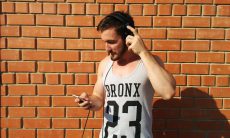The upcoming 2010 World Cup in South Africa is being touted by FIFA and Twitter representatives as the event to slash all previous records in social media traffic. That’s a tall order, considering the US elections, the Beijing Olympics, the Oscars and even the Lost series finale were nothing to sneeze at in terms of frantic online real-time activity. Regardless of whether or not that bold prediction will be realized, the next 30 days of soccer madness will certainly bring a new way of experiencing the most widely-viewed sporting event in the world.

Image via Wikipedia
On June 11, the ball starts rolling at the Soccer City Stadium in Johannesburg, marking the first time the World Cup is held on the African continent. It’s also the first time the popular tournament will be testing the open waters of Facebook and Twitter. Zuckerberg’s social networking service opened to the general public only in September 2006, and most people had never heard about Twitter when France’s Zinadine Zidane infamously headbutted Italy’s Materazzi in the finals four years ago. Social media was already pervasive back then, but mainly in the form of blogs, wikis, podcasts and video sharing.
Thus, most of the online impressions around that play developed not instantly, but minutes, hours, and days after it happened, and they were particularly prominent in YouTube, the big social media star at the time. My favorites–but perhaps NSFW–are the Coup de Boule song and this compilation of 114 parodies of the unusual, err, interaction.
Furthermore, most of us were still passive small screen spectators of the games, with mainstream media being the intermediaries between the athletes and the public. Now, several players have their own Twitter accounts, and are already commenting on what’s going on in the last days before the kick-off. I compiled a Twitter list of players—including some of the stars left out–in case you want to take a peek at their thoughts before and during the competition. Some teams, such as England and Spain, already banned the use of Twitter and Facebook, but others like Brazil and The Netherlands are ok with it.
Perhaps the most interesting bits won’t come from the players themselves, but from the people close to them. Shortly after the game where Real Madrid was eliminated from the UEFA Champions League on March 10, Kaká’s wife retweeted a post by one of his advisers calling Madrid’s coach a “coward”. Social media guidelines are not easy to enforce outside team boundaries.
If you are into social media, but not into soccer, you must be asking by now: why do I care about all this World Cup nonsense? You should care for at least two reasons. First, it will provide all of us a better opportunity to understand the reach and importance of Facebook and Twitter outside North America. Some reports indicate that nearly 50% of Twitter accounts and one quarter of Facebook users hail from outside the US. All the previous events driving high traffic in Twitter and Facebook were wildly popular with Americans and Canadians. As both the US and Canada have traditionally not been major soccer markets, we can for the first time observe the extent to what the rest of the world embraces the two services. Furthermore, the instantaneous nature of the play-by-play reactions and the unprecedented volumes will allow a much closer reading of regional differences in the use of social media, something that the Oscars or Lost can only give us a glimpse of. The “world game” has never been this worldly.

![Reblog this post [with Zemanta]](http://img.zemanta.com/reblog_e.png?x-id=a7b23f02-909a-4ece-8beb-1672f5771891)



